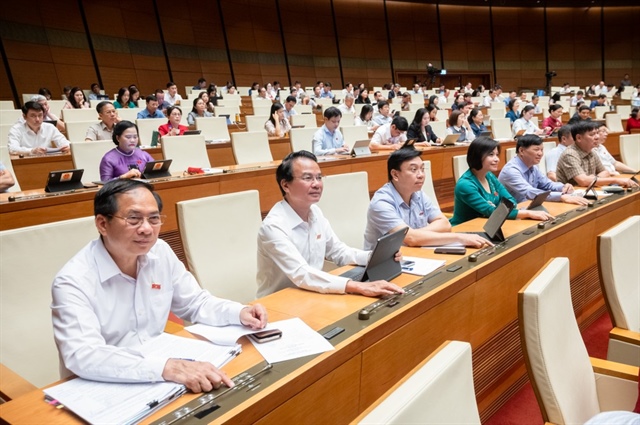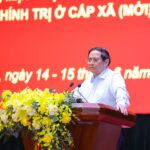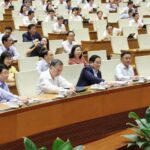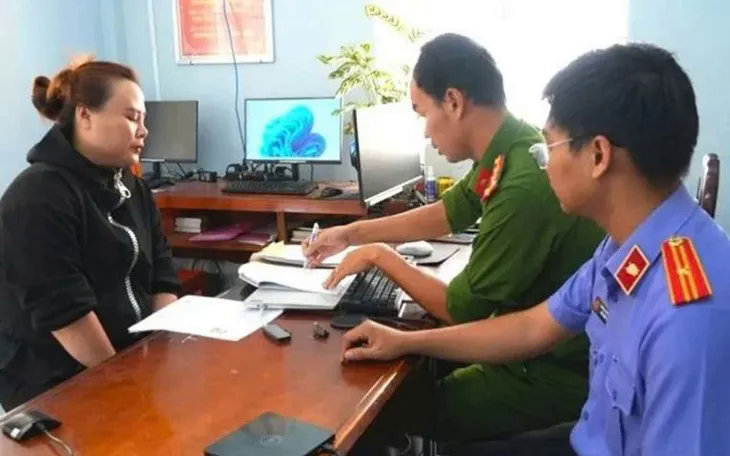On June 16th, with a unanimous vote, the National Assembly passed the amended Law on Local Government Organization. The law, effective immediately, marks the end of the 696 district-level units, which will cease operations from July 1st, 2025.
The law streamlines Vietnam’s administrative units into two levels: the provincial level (including provinces and centrally-run cities) and the communal level (including communes, wards, and direct units under provincial management). According to the law, local governments at these administrative units will consist of People’s Councils and People’s Committees.
The law also introduces special administrative-economic units, which are strategically located and organized with unique models. These units will enjoy superior preferential policies and new local governance, investment attraction, and national competitiveness enhancement measures to boost socio-economic development in the region and the country. The establishment of these units will be decided by the National Assembly.
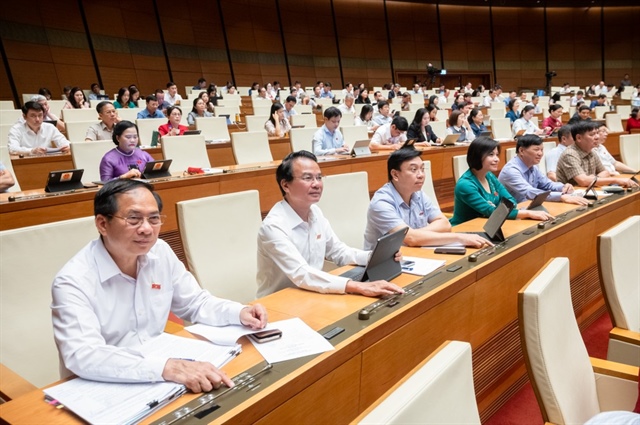
National Assembly members voting to pass the amended Law on Local Government Organization. Photo: PHAM THANG |
The amended law emphasizes the delegation of authority to local governments, with a focus on empowering local authorities to make decisions and take responsibility within their jurisdiction. It also introduces provisions for decentralization and authorization, allowing for more efficient and effective governance.
Regarding the determination of authority, the law clearly states the principle of promoting decentralization and delegation of tasks and powers from central government agencies to local authorities. It distinguishes between the authority of the People’s Committees and that of the Chairpersons of the People’s Committees at the provincial and communal levels, ensuring no overlap or redundancy in tasks and powers between central and local government agencies and within local government tiers.
On decentralization, the law stresses local government autonomy in decision-making, implementation, and accountability within their delegated jurisdiction. It allows for further delegation of tasks and powers to local authorities, except in cases where laws or National Assembly resolutions prohibit delegation.
Provincial People’s Committees and their chairpersons are empowered to decentralize tasks and powers to public non-business units under their management, enhancing their autonomy in unit governance and public service provision. Decentralization must be stipulated in legal documents issued by the decentralizing agency or individual, who is also responsible for ensuring the necessary conditions for the implementation of decentralized tasks and powers.
The law also introduces provisions for authorization, allowing People’s Committees to authorize their chairpersons, heads of specialized agencies, other administrative organizations, and public non-business units under their management, as well as lower-level People’s Committees and their chairpersons. Chairpersons of People’s Committees can further authorize heads of specialized agencies and other administrative organizations or lower-level People’s Committees and their chairpersons.
At the communal level, the chairperson of the People’s Committee can authorize civil servants under their management to perform specific tasks and powers delegated to them by law, within a defined timeframe and with specific conditions. These authorized civil servants can use the seal of the communal People’s Committee when signing on behalf of the authorized chairperson. The provincial People’s Council will define the scope of tasks and powers that can be authorized to civil servants at the communal level.
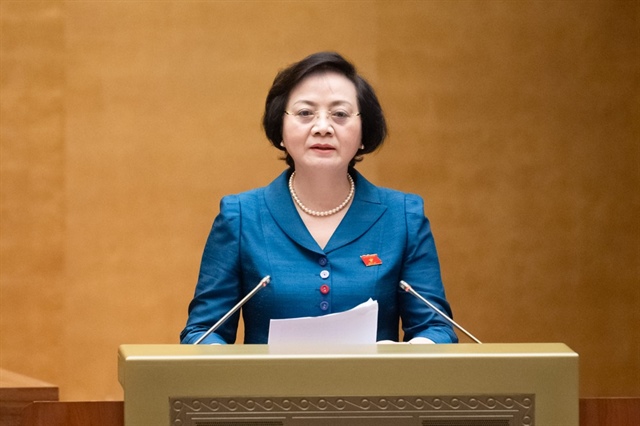
National Assembly members voting to pass the amended Law on Local Government Organization. Photo: PHAM THANG |
The law also grants the provincial People’s Councils and their chairpersons the power to decentralize tasks and powers. Minister of Home Affairs Pham Thi Thanh Tra highlighted that clearly defining the authority of collective and individual decision-making bodies within local governments fosters flexible and efficient governance, encouraging creativity and initiative from local government leaders.
The government has refined the provisions on authority determination, decentralization, delegation, and authorization by incorporating feedback from National Assembly members. Notably, they have included the provincial People’s Councils and their chairpersons as decentralization subjects and introduced a monitoring and evaluation mechanism to promptly adjust decentralized and delegated tasks and powers.
The law also comprehensively redesigns the tasks and powers of local governments at the two levels, ensuring clear distinctions and avoiding overlaps. The government has meticulously reviewed and adjusted the tasks and powers of provincial and communal People’s Committees and their chairpersons, resulting in a more dynamic and responsive distribution of responsibilities.
Additionally, the law introduces a mechanism for the Standing Committee of the National Assembly, the Government, the Prime Minister, ministers, heads of ministerial agencies, and provincial People’s Councils and People’s Committees to address emerging issues not covered by existing laws. This mechanism ensures the timely resolution of unforeseen situations and promotes responsive governance.
– 09:44 16/06/2025
“HDBank and PV Power Sign VND2,000 Billion Credit Limit Agreement: A Step Towards Sustainable Energy Transition.”
“Forging ahead with its commitment to green finance and sustainable development, on June 11, 2025, HDBank (HOSE: HDB), a prominent commercial bank in Vietnam, inked a significant credit agreement with PV Power, a foremost electricity producer under the umbrella of Petrovietnam. The agreement comprised a credit limit of VND 2,000 billion, marking a pivotal step in HDBank’s journey toward fostering environmentally conscious initiatives.”
“All 63 Provinces and Cities Are Our Homeland”
“All 63 provinces are our homeland, and so are 34,” asserted Prime Minister Pham Minh Chinh. As we embark on the reorganization of local administration into two levels from July 1st, the Prime Minister has urged us to cast aside prejudices and act with urgency and determination for the greater good. There is no room for hesitation or the inertia of parochialism.
The Congress Passes Resolution to Amend the Constitution: County-Level Operations to Cease from July 1st, 2025
The National Assembly’s resolution to amend and supplement several articles of the 2013 Constitution stipulates the cessation of district-level administrative units across the country from July 1, 2025, onwards. Additionally, it affirms the status of the Vietnam General Confederation of Labour, the Vietnam Farmers’ Union, the Ho Chi Minh Communist Youth Union, the Vietnam Women’s Union, and the Vietnam Veterans Association as socio-political organizations under the umbrella of the Vietnam Fatherland Front.

